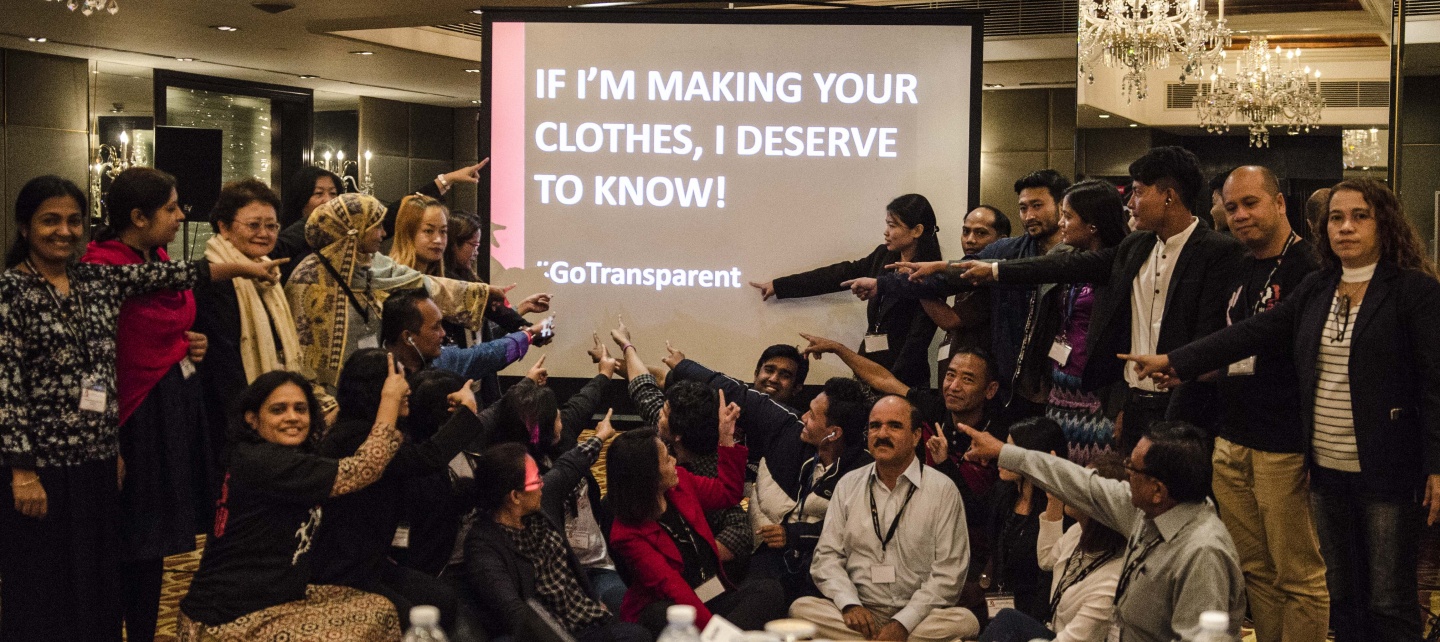1 October, 2017The fashion industry has changed rapidly; strategies of the past are no longer relevant today. During IndustriALL’s Asia-Pacific regional meeting for the Textile, Garment, Leather and Shoe sectors in Bangkok, 80 participants discussed common goals and strengthening unions through unity.
80 participants from 12 countries met on 29-30 September in Bangkok, Thailand to discuss the sector’s policies and priorities.
IndustriALL’s global brand strategy has resulted in agreements between global labor and brands, such as H&M, Inditex and Tchibo. The Bangladesh accord and the ACT initiative illustrate the promises of collective actions to leverage change.
“This is an important sector for IndustriALL because it is at the forefront of testing some of our supply chain strategies. These are direct agreements between local unions and companies at national and global level. When brands and trade unions work together, real change can be made,” said Jenny Holdcroft, IndustriALL Assistant General Secretary.
“The fashion industry has changed so rapidly and the strategies of the past are no longer relevant today which is why IndustriALL is ready to change our strategy to get our global voice heard, “said Christina Hajagos-Clausen IndustriALL Textile Garment Leather and Shoe Sector Director.
Sector co-chairs Akiko Gono and Athit Kong emphasized the need for the unions to join forces.
"We must have a common vision to fight for workers’ rights to form unions and improve wages and working conditions in the sector, and in our region," said Kong.
"We face challenges, but we are in this together. By sharing our experiences we can develop our sense of solidarity - our most effective weapon is our unified power," said Gono.
A case study on the H&M Global Framework Agreement was presented and brought together the National Monitoring Committee (NMC) representatives from Cambodia, Myanmar, Bangladesh and Indonesia. They reported on the process of creating well functioning industrial relations through the NMC mechanism in the H&M GFA.
In a growing industry with complex supply chains, transparency is vital. "We want the factories to publish the information on their supply chains,” said Aruna Kashyap from Human Rights Watch, presenting our Transparency Pledge Campaign.
The pledge was fully supported by participants as increased transparency means that violations of labour rights can be identified.
IndustriALL regularly joins forces with relevant actors fighting for a sustainable garment industry. Sarah Ditty from Fashion Revolution spoke about their communication strategies and how teaming up with IndustriALL helps to amplify and share union struggles in the sector by sharing their message to their large audience of consumers, an audience that IndustriALL struggles to reach.
Precarious employment is rife in the garment industry, especially in the Asia-Pacific region. Manifesting the fight to STOP Precarious Work on 7 October, participants presented their material for their campaign.










